The infamous Senior Thesis is a source of stress and anxiety for many students. Although there are information sessions galore for juniors, I didn’t feel like I actually understood the process until I started it. This summer, I began my thesis research process by traveling to Norway to collect observational data on the country’s prison system.
Summer Experiences: Gaining Perspective Through Interdisciplinary Research
I’ve known that I wanted to do science research since the age of sixteen, when I spent my first summer in a neuroscience lab. My time in the lab taught me many new skills and enabled me to immediately apply them to unsolved problems–what other summer job could be more interesting than that? Though my specific interests have shifted slightly (I’m now a chemical and biological engineer rather than a neuroscientist), I’ve devoted every summer since to benchwork of some sort.
Consequently, when I started to look for laboratory opportunities last year, I immediately gravitated towards biology research. I had loved the past three summers–why not experience another? In the winter, I applied to internships through Princeton’s International Internship Program (IIP), and I was lucky enough to receive an offer to study the mechanisms of Shigella (a bacterium that causes dysentery) infection at the Pasteur Institute in Paris, France. I accepted immediately, thrilled that I’d be spending my summer abroad–and on Princeton’s dime!
But as the year wore on, I started to consider what the added value of another summer of wet-lab research would be, especially since time constraints would limit my contribution. I felt like was narrowing in on my chosen field too early. Wouldn’t I be bored?
Continue reading Summer Experiences: Gaining Perspective Through Interdisciplinary Research
Welcome Back!
The 2019-2020 academic year is up and running! Classes are in session, recruiting season is upon us, and our first paper deadlines are approaching. PCUR is back too as a resource to help guide you through this year. Our correspondents from across grade levels and academic disciplines will reflect on their own experiences, share tips that they have learned along the way, and raise awareness of the countless research-related opportunities and resources Princeton has to offer. Be sure to take a look at our first post of the year where Rafi offers advice on how to reduce independent work stress.
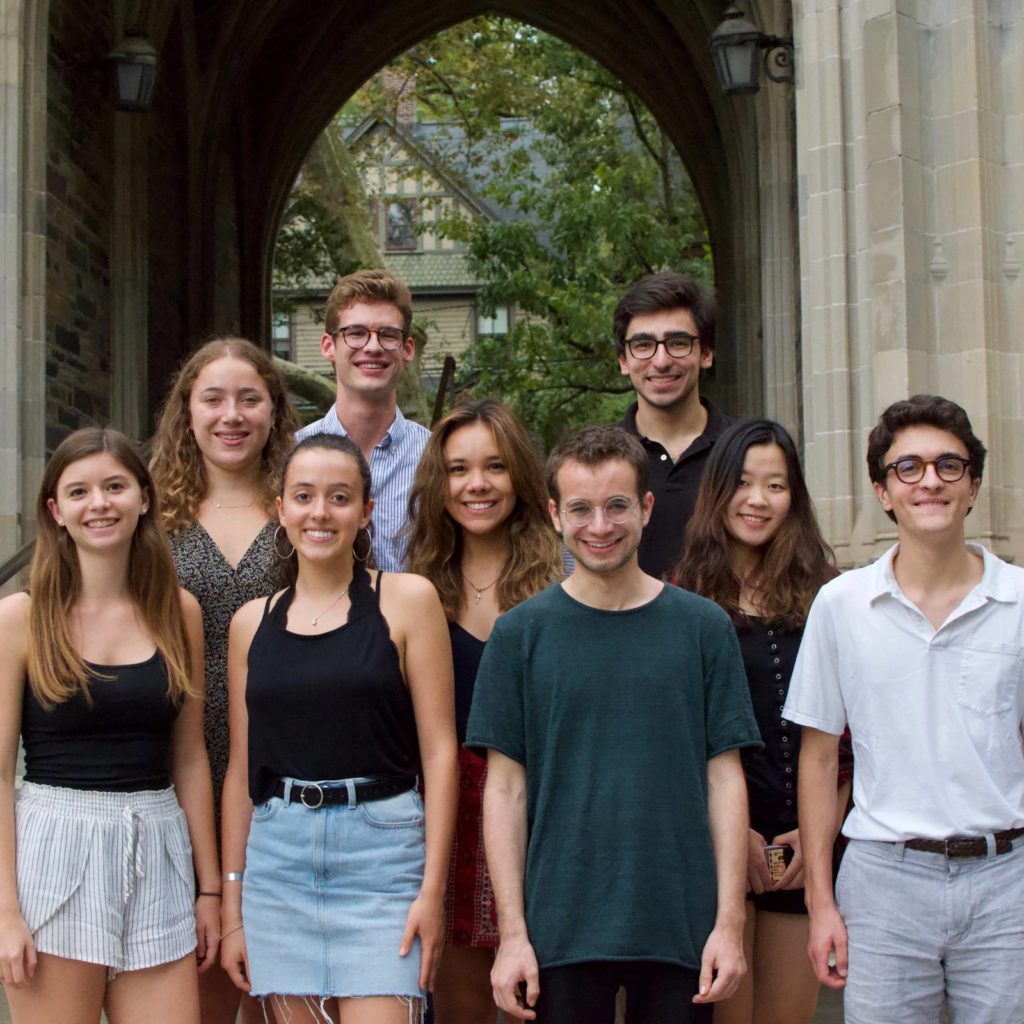
Along with our returning correspondents Rafi, Shanon, Andrea, Saira, and Alec, we have three new sophomore correspondents Ella, Kamron, and Soo. Check out their bios below!
How to Beat the Panic of Independent Work
Last fall, in a cubicle on the B-floor of Firestone, you might have seen me scrolling through my unfinished JP. It would have looked unremarkable. I had been working on my JP in the same cubicle for weeks. Except this time, my JP was due to my department in two hours and I was realizing I had about 25 pages of footnotes to complete. I was panicking: crying and shaking while typing faster than I’ve ever typed before.
Luckily, I was able to complete the citations and submit my JP with three minutes to spare! But it took me the rest of the night to recover from the experience (and, to be honest, I still get a rush of anxiety every time I think about it). I promised myself I would never allow myself to end up in the same situation again.
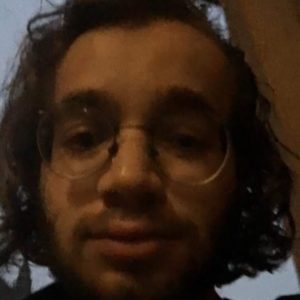
Whether it’s a final paper, a JP, or a thesis, here are some tools I’ve been using to help me beat the panic of independent work:
Post Princeton Life: Interview with Isabelle Laurenzi ’15
For this year’s Spring Seasonal Series, entitled Post-Princeton Life: The Experiences of PCUR Alumni, each correspondent has selected a PCUR alum to interview about what they have been up to. We hope that these interviews will provide helpful insight into the many different paths Princeton students take after graduation. Here, Raya shares her interview.
~~~
Teaching, travel, Congress, the Writing Center, political theory, Yale! Former PCUR chief correspondent Isabelle Laurenzi graduated from Princeton in 2015 with a degree in Religion. She has since gone on to pursue an array of adventures and projects. Most recently, Isabelle completed her first year of a Ph.D. program at Yale in political theory. For our seasonal spring series, I caught up with Isabelle to learn more about her time at Princeton and explorations after. In our conversation, Isabelle and I connected over our shared interest in interdisciplinary studies and the joy of pursuing one’s interests through varied avenues.
Continue reading Post Princeton Life: Interview with Isabelle Laurenzi ’15
Post-Princeton Life: Interview with Jalisha Braxton ’16
For this year’s Spring Seasonal Series, entitled Post-Princeton Life: The Experiences of PCUR Alumni, each correspondent has selected a PCUR alum to interview about what they have been up to. We hope that these interviews will provide helpful insight into the many different paths Princeton students take after graduation. Here, Alec shares his interview.
~~~
Jalisha Braxton ‘16 was a member of PCUR during her junior and senior years at Princeton. She concentrated in Psychology, with a certificate in Neuroscience. She is now a third-year PhD student in psychology at the University of Chicago, where she studies cognitive psychology with Professors Sian Beilock and Susan Levine. Her research focuses on math anxiety and math education. I spoke to Jalisha over the phone to discuss her work as a grad student, and how her experience as an undergraduate student at Princeton informed her post-grad plans. I found a lot of what she said to be quite helpful, as I personally am considering pursuing a PhD after graduation.
This interview has been edited for length and clarity.
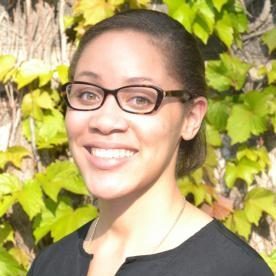
Continue reading Post-Princeton Life: Interview with Jalisha Braxton ’16
Post-Princeton Life: An Interview with Stacey Huang ’16
For this year’s Spring Seasonal Series, entitled Post-Princeton Life: The Experiences of PCUR Alumni, each correspondent has selected a PCUR alum to interview about what they have been up to. We hope that these interviews will provide helpful insight into the many different paths Princeton students take after graduation. Here, Saira shares her interview.
~~~~~
As part of the Spring Seasonal Series, I interviewed Stacey Huang ’16, who was an engineering correspondent in the electrical engineering department. Stacey is now pursuing a Ph.D. in electrical engineering at Stanford University. As an engineering student who is also interested in pursuing a graduate degree, I interviewed Stacey to find out more about her research experience.
Continue reading Post-Princeton Life: An Interview with Stacey Huang ’16
Post-Princeton Life: Interview with Melissa Parnagian ’17
For this year’s Spring Seasonal Series, entitled Post-Princeton Life: The Experiences of PCUR Alumni, each correspondent has selected a PCUR alum to interview about what they have been up to. We hope that these interviews will provide helpful insight into the many different paths Princeton students take after graduation. Here, Rafi shares his interview.
~~~~~
I met Melissa, the former PCUR Chief Correspondent, in my first precept at Princeton—Professor Duneier’s SOC 101 – “Introduction to Sociology” in the fall of 2016. It was an intimate and difficult precept where we discussed race, gender, and class—conversations that were quite new to me at the time. Many of our discussions from that precept have stayed with me and guided my current academic work. The following semester, Melissa sent me an email telling me to apply to write for PCUR… and the rest is history. This past week, I caught up with Melissa over email to hear more about her time since graduation and her reflections on post-grad life.
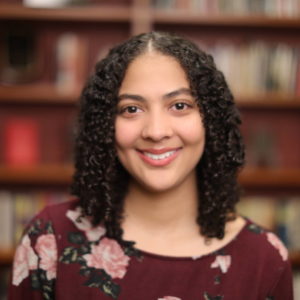
Continue reading Post-Princeton Life: Interview with Melissa Parnagian ’17
Post-Princeton Life: Interview with Emma Kaeser ’18
For this year’s Spring Seasonal Series, entitled Post-Princeton Life: The Experiences of PCUR Alumni, each correspondent has selected a PCUR alum to interview about what they have been up to. We hope that these interviews will provide helpful insight into the many different paths Princeton students take after graduation. Here, Andrea shares her interview.
~~~~~
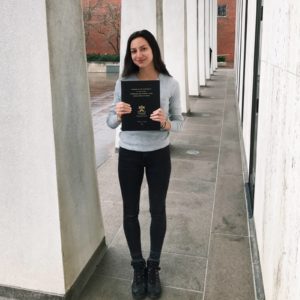
For this semester’s seasonal series, I decided to interview PCUR alum Emma Kaeser, a Princeton graduate from 2018 and a current student at Stanford Law School. While at Princeton, Emma concentrated in the Woodrow Wilson School (WWS); as a WWS concentrator and someone who is planning on going to law school after I graduate, I thought it would be interesting to ask Emma a few questions about her experience here and how it shaped her post-graduation trajectory.
Continue reading Post-Princeton Life: Interview with Emma Kaeser ’18
Post-Princeton Life: An Interview with Bennett McIntosh ’16
For this year’s Spring Seasonal Series, entitled Post-Princeton Life: The Experiences of PCUR Alumni, each correspondent has selected a PCUR alum to interview about what they have been up to. We hope that these interviews will provide helpful insight into the many different paths Princeton students take after graduation. Here, Nanako shares her interview.
~~~~~
In my last post, I wrote about how to get the most out of your short-term research internship. In this post, I provide some more insight I got about how to get the most out of my summer internship— this time from a more credible source: a Princeton alumnus. I interviewed Bennett McIntosh ’16, who used to write for PCUR, about his Princeton research experience.
Here’s a bit about Bennett:
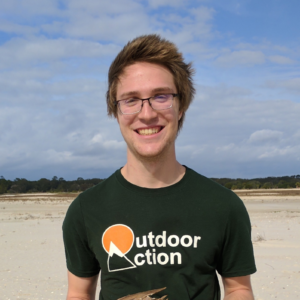
Bennett McIntosh is a freelance science writer and reporter living in Boston, covering the intersections of scientific research, technological change, and social welfare. He is currently helping to relaunch Science for the People, a magazine of science and politics whose first iteration grew out of the 1960s anti-war movement. While studying chemistry at Princeton, he wrote opinion columns for the Daily Princetonian, science stories for Innovation, and lousy jokes for the Princeton University Band.
Continue reading Post-Princeton Life: An Interview with Bennett McIntosh ’16

